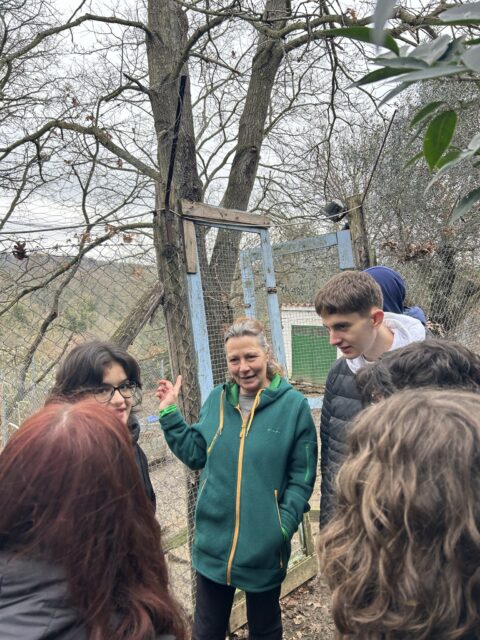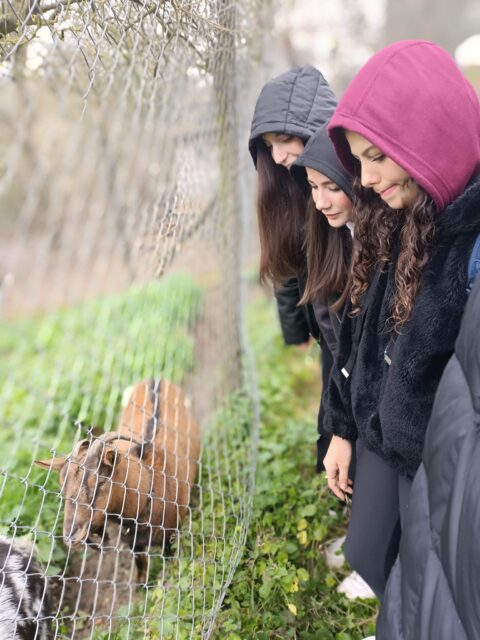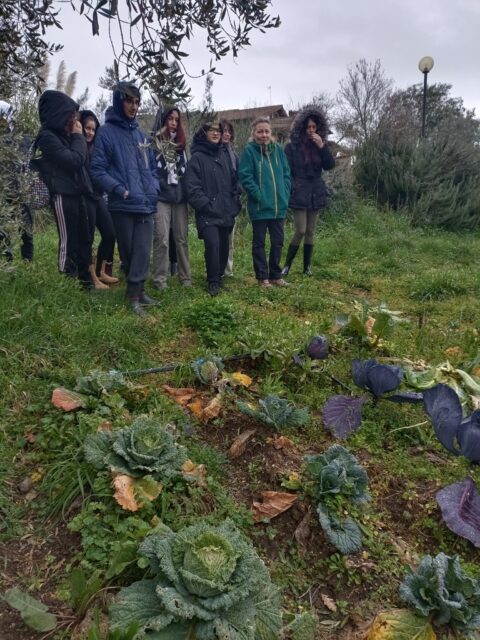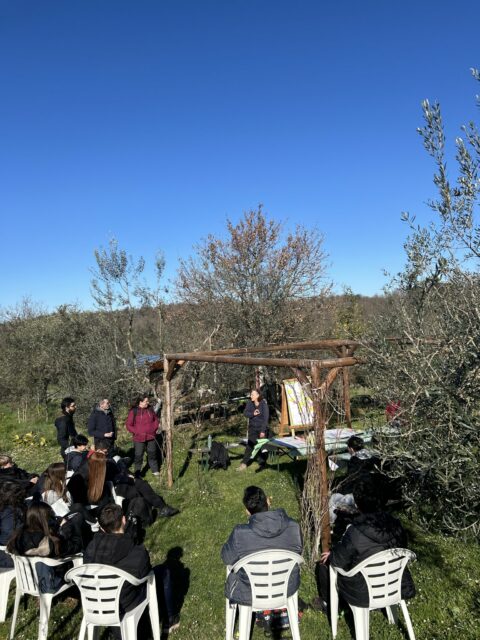
Immersive experiences at Le Bricchiette Organic Farm offered young project participants a unique opportunity to understand the meaning of equity in production, ecologically, socially and ethically. Elena, the farm owner, conveyed a clear message through her own farming: every element of the ecosystem is essential for its balance and for the production of healthy food, with biodiversity being the main ingredient of any agroecological model.






Workshop 1: Agroecology and Life – Discovering Biodiversity in Action
During the first workshop, participants explored the role of biodiversity in agroecological practices and the value of a fair and sustainable production model. Activities included:
- Exploratory walk along the crop fields: observation of cultivated biodiversity and its impact on ecological balance.
- The value of fair and local production: reflection on the link between biodiversity, food sovereignty and social justice.
- Interaction with Elena and knowledge exchange: insights into agroecological principles and farm management choices.
This experience offered young project participants a concrete understanding of the interconnection between agricultural ecosystems and sustainable food production.
How Are Eggs Produced, and What Does Biodiversity Have to Do with It?
By deconstructing their favorite dishes, the young participants began exploring the differences between industrial and ecological food production.
Starting with the question, “What does organic mean to us?”, we visited the farm to understand the true meaning of fair food production—ecologically, socially, and ethically. Elena, the farm’s owner, conveys a clear message through her agricultural practices: every element of the ecosystem plays a vital role in maintaining balance and producing healthy food. Biodiversity, she emphasizes, is the key ingredient in ecological food production.
By realizing that every part of a farm is alive and has a purpose, the young participants developed a deeper connection to agroecological production through empathy. The activity concluded with a final reflection on the crucial role of biodiversity in our food systems.






Workshop 2: Experiencing Agroecology – A Pathway to Regeneration
In the second workshop, participants explored the importance of the interconnectedness of various forms of life for the balance of an agricultural ecosystem capable of regenerating nature. The session included the following topics:
- Agroecological alternatives to the high-impact conventional agricultural model: how agroecological practices counter a model based on monoculture, intensive use of chemical inputs and high irrigation requirements, restoring fertility and life to the soil.
- Seasonality and local production: comparing the value of seasonal product availability versus intensive production models.
- The energy cost of industrial production: reflection on the environmental impact of off-season cultivation versus the sustainability of local farms.
Through these activities, young project participants gained tools to understand the link between food production, biodiversity and ecological justice.
Cultivating Organically Means Caring for Our Ecosystems!
This was the answer given by our young participants to the question, “What does ‘organic’ mean to you?” during their visit to the “Le Bricchiette” organic farm. Taking advantage of one of spring’s first sunny days, we explored the farm alongside its founder, Elena, to observe how biodiversity is integrated into the cultivation system and forms its foundation.
We discussed how free-range chickens live and contribute to soil health, how bees feed on the blooming winter orchard, and we curiously collected wild herbs such as Berberis vulgaris, Plantago lanceolata, and Pimpinella saxifraga.
Our visit encouraged us to reflect on the value of food availability and the need for a more equitable and secure production model compared to what we often find in supermarkets. We considered the high energy consumption required to produce out-of-season vegetables, while local businesses offer a wide range of organic seasonal products.
And yes, avocados are also linked to climate change: with rising temperatures, tropical plants are increasingly being cultivated even in central Italy. The environmental impact of avocado cultivation is well-known due to its high irrigation needs when grown in monocultures and the transportation associated with large-scale food distribution.
In contrast, local organic farming alternatives are evolving to adapt to climate changes and rising temperatures observed in recent years. These efforts contribute to reducing negative environmental impacts and creating alternatives to industrial food systems.
https://youtube.com/shorts/y-W_4xy00mg
When educational paths are rooted in the territory
The workshops held at Le Bricchiette Farm embodied the idea of education that comes from direct experience. The farm was transformed into a living laboratory, where young participants were able to experience firsthand the value of agroecology. This experiential approach reinforced a relational understanding of the land as a living partner, promoting values of care, reciprocity and harmony with nature.
Education as a Tool for Transformation
The activities carried out at Le Bricchiette fit into the broader educational vision of Navdanya International, which aims at training young leaders capable of imagining and building equitable and resilient futures, and considers education an essential driver for the transition to regenerative systems.
